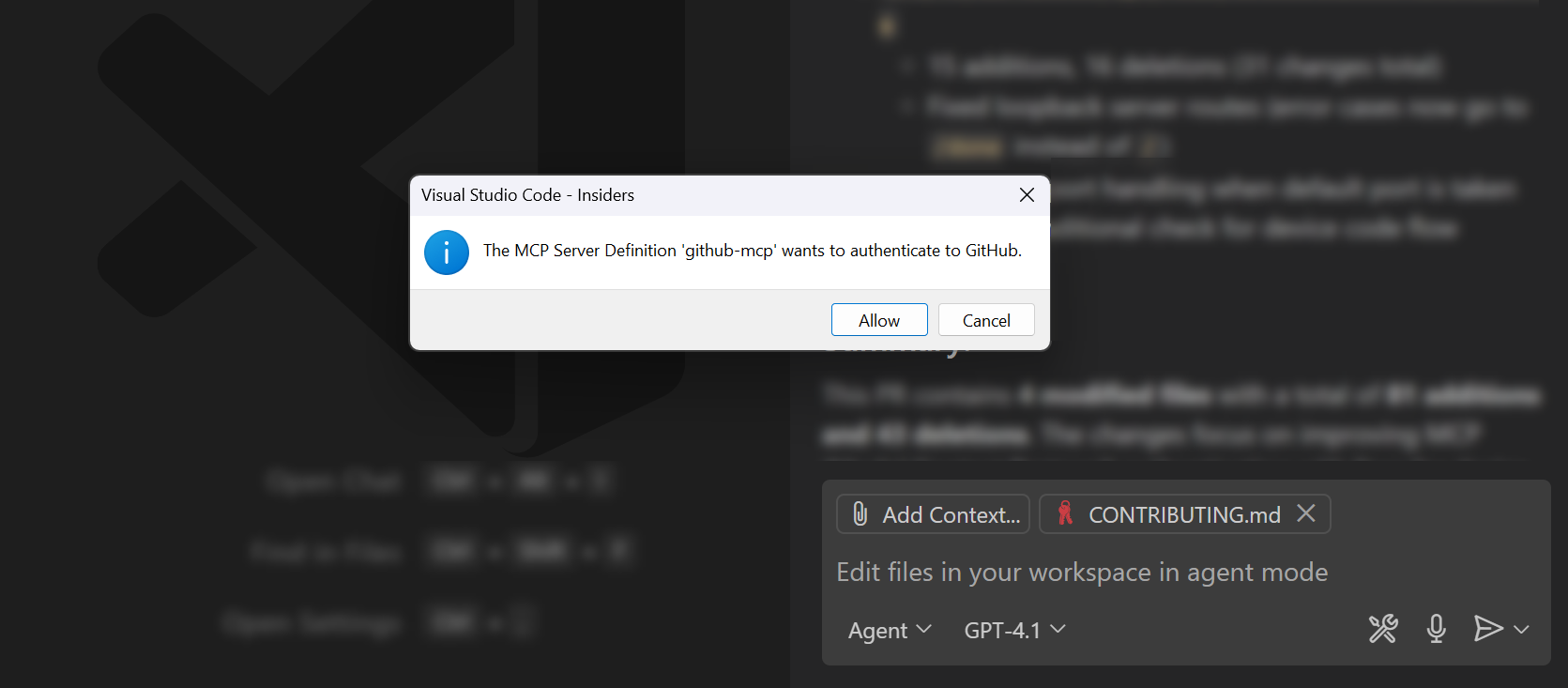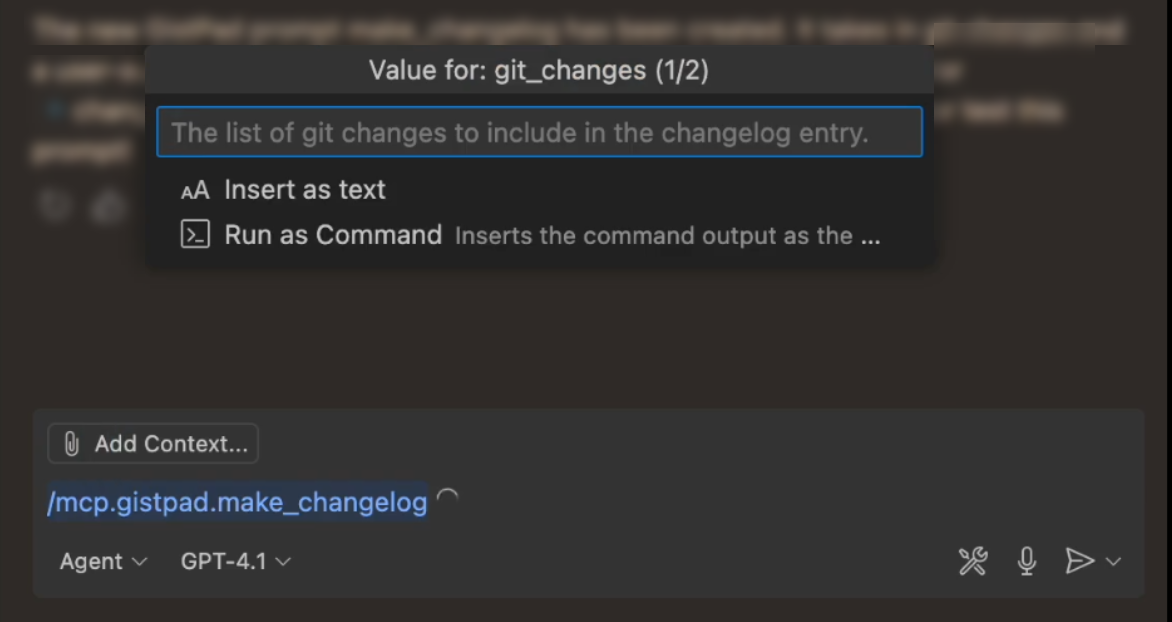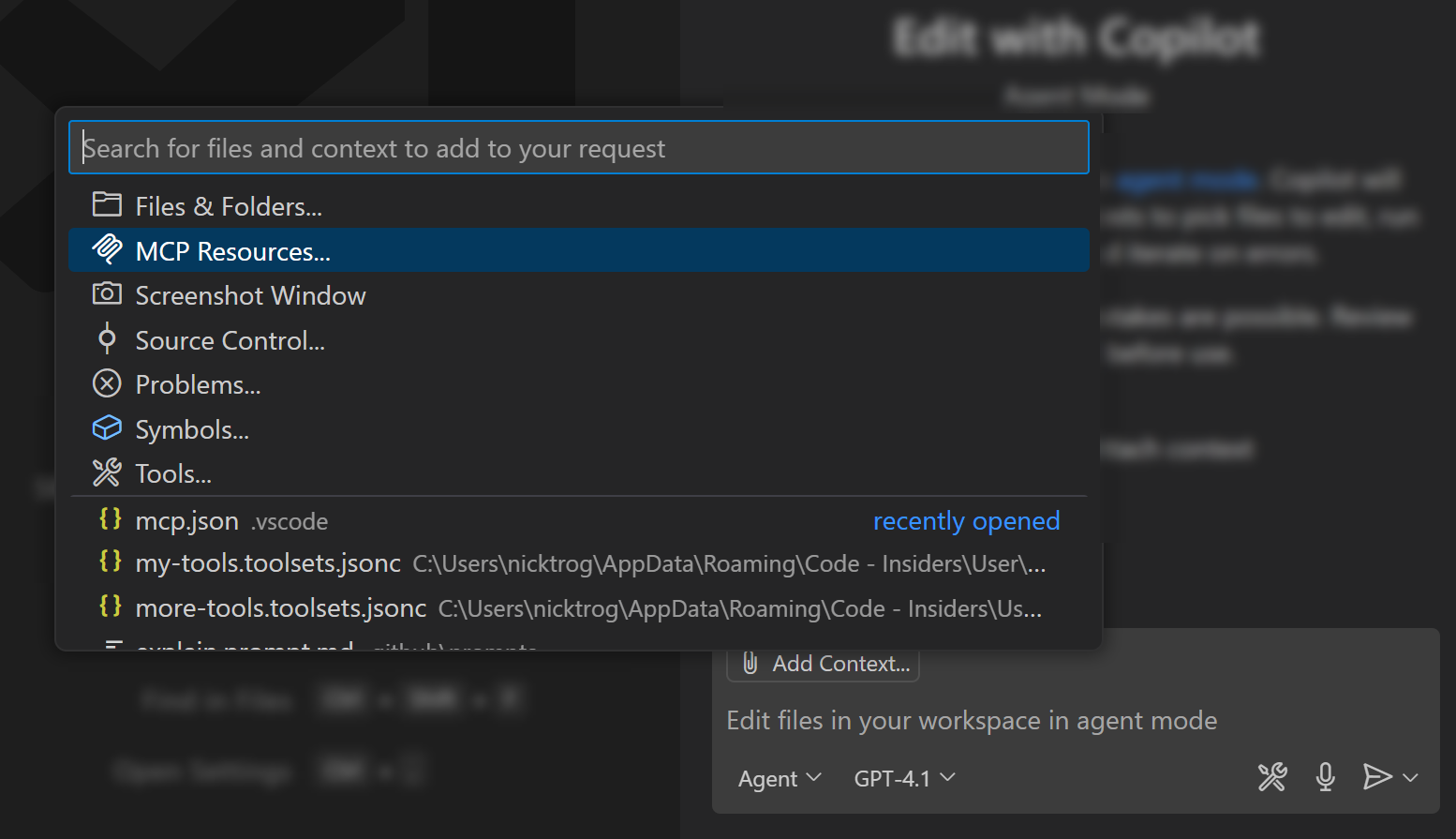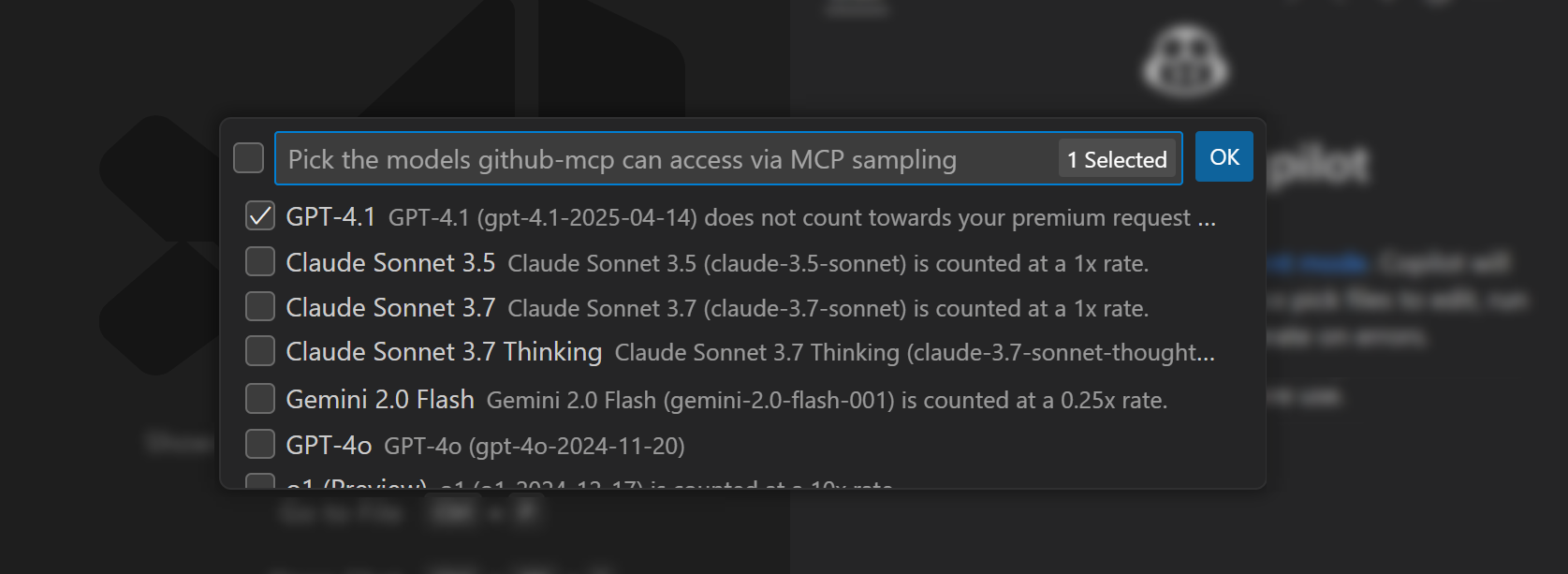The Complete MCP Experience: Full Specification Support in VS Code
June 12, 2025 by Harald Kirschner, Connor Peet, and Tyler Leonhardt
VS Code now supports the complete Model Context Protocol specification.
MCP co-creator David Soria Parra reflects on this milestone:
I'm excited to see what developers will build now that they have access to the full spectrum of MCP features within VS Code. The community continually impresses me with their creativity and drive to push the boundaries of what's possible.
Beyond the initial tools and workspace awareness we introduced in May, you can now use authorization, prompts, resources, and sampling. These additions transform MCP from a set of individual tools into a comprehensive standard for AI agent integrations.
Security-First: The New Authorization Foundation
The new authorization specification is the biggest leap forward. Microsoft, Anthropic, and the broader identity community—including Okta/Auth0, Stytch, and Descope—collaborated on this effort. The new specification cleanly separates MCP servers as Resource Providers from Authorization Servers, allowing developers to delegate authentication to existing identity providers rather than building their own OAuth implementations from scratch. For the technical details on how the new authorization flow works, check out Den Delimarsky's comprehensive overview.
Combined with streamable HTTP transport (which landed in our previous version), this enables remote MCP servers that can scale independently while maintaining enterprise-grade security. The GitHub MCP Server demonstrates this evolution perfectly—it's now available as a remote server with proper OAuth integration that uses VS Code's existing GitHub authentication and account management, so you can securely connect repositories and issue tracking.

Beyond Tools: The Complete MCP Primitives
While tools handle individual actions, Prompts deliver complete workflows. These aren't static templates—they're dynamic, context-aware starting points that servers can tailor to your current workspace and project state. When a server provides prompts, they appear directly in VS Code's slash commands next to your user-defined prompts, letting you invoke sophisticated workflows with a simple /mcp.servername.promptname command.

Resources represent semantic information that you can interact with directly. For example, when the Playwright MCP server takes a screenshot of a web application, that image can become a resource that you can drag into your workspace, annotate, or share with teammates. When debugging tools return logs, those logs can stream live updates directly in VS Code.

Perhaps the most upvoted MCP capability is Sampling, the ability for MCP servers to make their own language model requests. Instead of servers managing their own AI SDKs and API keys, they can use your existing model subscription. This enables complex reasoning and multi-agent coordination, while you maintain control over security, privacy, and costs.

Ready to Explore
The complete MCP experience is available now in VS Code. Try the GitHub MCP server with its new remote capabilities and VS Code authentication integration, explore servers that provide rich prompts and resources, or build your own server that takes advantage of the full specification.
To get started, check out the VS Code MCP documentation, browse the official server repository, or dive into the Model Context Protocol specification.
The MCP ecosystem now has a client that provides the complete foundation to build on.
Happy Coding!